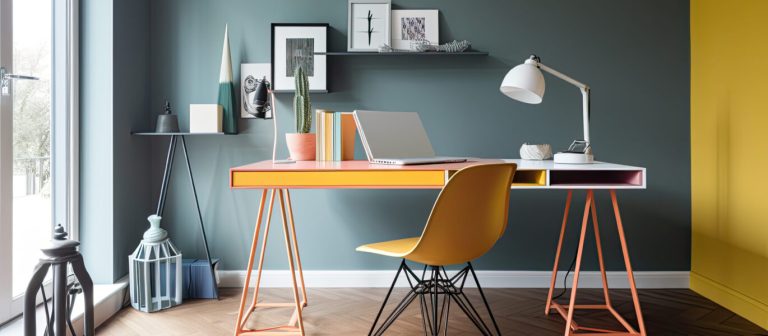When many people around the world suddenly started working from home in 2020, everyone started creating home office spaces in their homes. But a desk shoved into the corner of your bedroom or living room isn't necessarily the best solution. Design psychologist and style director Amber Dunford feels strongly about the home office.
“It's psychologically important to disconnect from work at the end of the day,” says Dunford. Here are some tips for creating that important distance:
Create visual separation
Physically separating your work and home spaces is ideal, but if you're not lucky enough to be able to close the door at 5 p.m., there are visual separation methods that signal to your brain that work is done. Dunford recommends using dividers, rugs of different colors, or plant dividers to make the spaces feel separate.
Reduce clutter
Clutter is one of the biggest challenges in any workplace, but at home, it's even more likely to become cluttered with laundry that needs folding, unopened mail, and work documents left on your desk.
“Having storage solutions is so important,” says Dunford. “We get really stressed out over clutter.”
To reduce clutter, start with a good desk. Open desks are beautiful but not particularly practical in a multi-purpose space. A desk with drawers and other storage out of sight works best. Dunford also recommends a file cabinet on wheels that can be tucked away in a closet, or a sideboard that can double as a side table after work.
Create a routine to stay balanced
A home office can also help you develop healthy work routines, eliminating bad habits like answering emails right before bed. To replace the physical and mental separation that a commute brings, Dunford recommends creating a new routine.
“Just like a sleep routine, a work routine is super important,” she says. “It signals to my brain that it's time to work, or at the end of the day, I have a routine that signals to my brain to shut down and switch gears.”
This routine might include making coffee in the morning, turning on your desk lamp, turning off your computer, and if you're working on a laptop, putting it away out of sight in a drawer at night.
Add a personal touch
Studies have shown that office workers are happier and more productive when they decorate their cubicles. The same goes for your home office: personalization increases motivation and satisfaction while you work. Dunford also recommends keeping some non-work related items nearby, like a guitar to play a little tune or a sketchbook to doodle in, to clear your head between meetings.
“Einstein would play the violin when he got stuck on a mathematical formula. It's actually really helpful for the brain to be exposed to the other side, so even just having a little space where you can stretch or do a crossword puzzle is great.”

